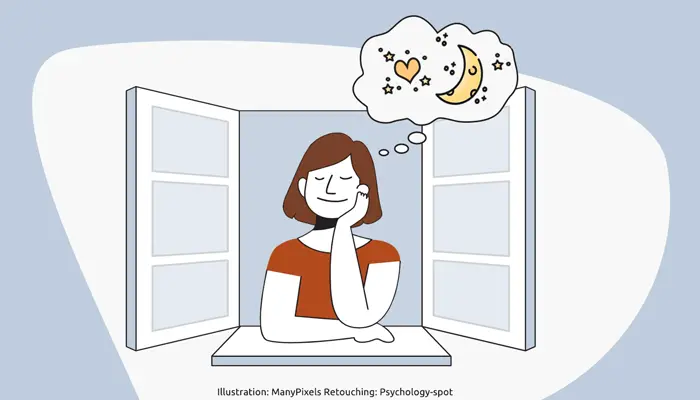
Sometimes it is an automatic act: we approach the window, something catches our attention and we watch, while the time passes slowly and inexorably. Many people do it with a certain sense of guilt, they reproach themselves for wasting time because they assume that looking out the window is a passive and useless act. However, that act of letting the eyes wander through the landscape, with the mind that wanders free, is much more beneficial than we suppose.
See the world passing by
The poet Wallace Stevens said that “it’s not always easy to tell the difference between thinking and looking out the window.” And the fact is that this act of “procrastination” does not only mean seeing what is happening outside, but that it can become an exercise to discover the contents of our mind.
Plato suggested that our ideas are like birds fluttering in the aviary of our brains. For the birds to settle, he considered that we needed periods of calm without any special purpose. Looking out the window offers us such an opportunity.
Seeing the world moving while we are quiet and relaxed is as if for a few minutes we got off the train in motion. We have no specific objective and our attention wanders aimlessly, so the simple act of looking out the window can be almost as relaxing and restorative as meditation.
We must not forget that from time to time our brain simply needs to “disconnect”, a period that serves it to “reset” and that helps us recharge the energy.
The mind that wanders, a key to creativity
The ability to dream with open eyes is not recognized as valuable in societies obsessed with productivity, but some of our best ideas arise precisely from the creative potential that entails dreaming. Staying in front of the window frees us from immediate pressures and worries, allowing the mind to wander freely.
This was verified by psychologists from the University of California, who asked 145 people to report unusual uses for everyday objects. After the first session, some people were assigned an undemanding activity to stimulate mental distraction and others had to solve more complex problems. In the second session, those whose minds had wandered aimlessly, reported 40% more creative uses than those who had remained focused.
Another study conducted at the University of British Columbia went a step further to demonstrate that dreaming not only stimulates creativity but also helps us solve complex problems. These neuroscientists discovered that our brain is very active when we daydream, much more than when we are focused on routine tasks.
Although the most curious of all was that the mind that wanders was more active and productive; that is, it allowed to be more creative and solve the problems more effectively, the less aware we are of their existence. To achieve that “alienated” state of mental wandering, there is nothing like being absorbed in front of a window.
It consolidates memories
Mental distraction can also play a vital role in the formation of memories. Neuroscientists at New York University asked a group of people to observe pairs of images and then they could have a break thinking about what they wanted.
Using functional magnetic resonance, the researchers analyzed the activity in the cortical regions of the hippocampus, the area linked to memory. They found that those who let their mind wander aimlessly, then were able to better remember the pairs of images. This is because the brain actually continues to work while “resting”. During this period, the information we have learned is being consolidated.
Therefore, especially in modern times when we are always connected and constantly receiving information, it is important to leave room for the mind to wander aimlessly. One way to do this is to sit in front of the window and watch the world go by.
Sources:
Baird, B. et. Al. (2012) Inspired by distraction: mind wandering facilitates creative incubation. Psychol Sci; 23(10): 1117-1122.
Tambini, A. et. Al. (2010) Enhanced Brain Correlations during Rest Are Related to Memory for Recent Experiences. Neuron; 65(2): 280–290.
Christoff, K. et. Al. (2009) Experience sampling during fMRI reveals default network and executive system contributions to mind wandering. PNAS; 106 (21): 8719-8724.




Jenny says
I like the post
Thank you
Jennifer Delgado says
Thank you for reading us…